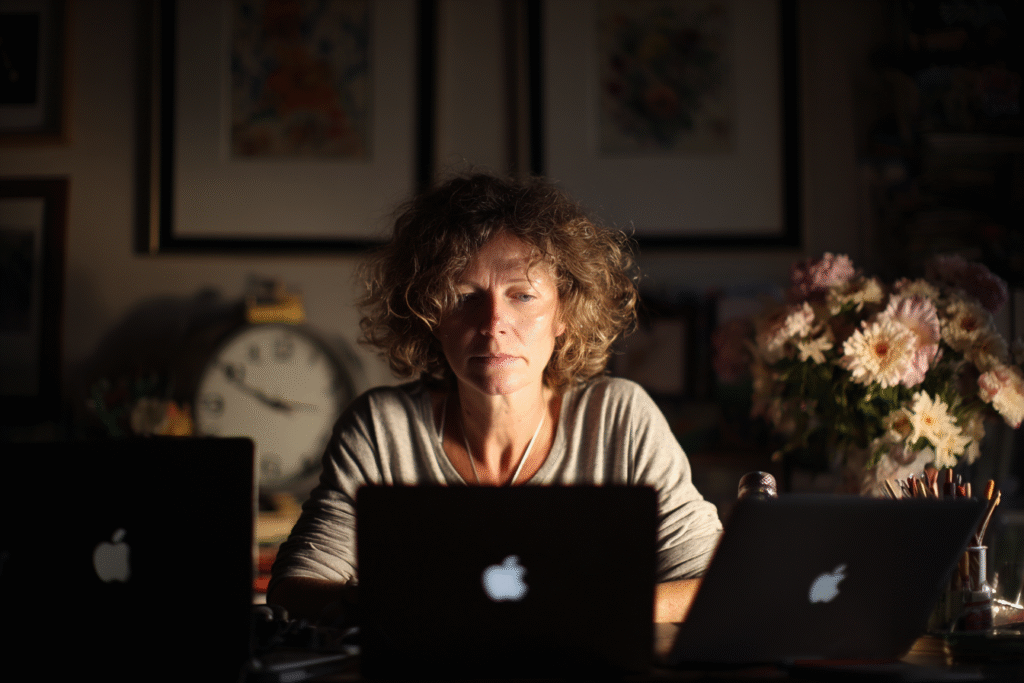
There was a time when simply publishing a book meant you’d make money. Upload a well-written novel with a decent cover, hit publish, and wait for the sales to roll in.
Those were the golden years of indie publishing. Keyword-rich titles and a little launch buzz could push a book into visibility. Then came the rapid release era: write fast, publish often, feed the algorithm gods. It was frantic, but it worked. For a while.
Fast forward to now: The market is saturated. Discoverability is a constant uphill battle. Amazon’s algorithm has become less predictable and more opaque. And let’s not forget the latest twist; AI flooding the market with low-quality content and making it harder than ever for original voices to stand out.
The indie landscape has shifted. The harsh truth? Fiction writing alone often isn’t enough to support a full-time career anymore.
I know. I’ve been writing full-time for a decade. But recently, I picked up a part-time contract as a magazine editor. Steady, paid work. Good work. But I didn’t miss the irony: after ten years of full-time fiction writing, my side gig now threatens to become my main gig.
And I’m not alone.
You’re Not Failing. You’re Adapting.
Many indie authors are facing the same compromise. They’re scaling back their writing hours not because they’ve lost the passion or burned out, but because the economics demand it.
If you’ve had to cut back on writing time to prioritize anything that keeps your business or life afloat—marketing, freelance gigs, part-time work, full-time work, you’re not failing. You’re adapting.
This isn’t some rare fluke. It’s becoming the norm.
ALLi (the Alliance of Independent Authors) has openly acknowledged this shift. They’ve written that multiple income streams aren’t just common among indies, they’re expected. If you’re making your entire living off book royalties alone, you’re the exception, not the rule.
Enter: The Three-Legged Stool
Screenwriter and author J. Michael Straczynski talks about income like a three-legged stool. If one leg disappears, you don’t fall flat on your face. You have other supports—editing, teaching, speaking, ghostwriting, rights sales, consulting, Patreon, affiliate marketing, courses, merchandise, ad revenue, you name it.
Even Straczynski—the guy who built Babylon 5, wrote for Marvel and DC, and penned memoirs and screenplays—juggles his income sources. If he isn’t relying on one golden stream of creative income, why should we?
Joanna Penn has long championed this idea, too. She built a business around multiple interconnected streams: fiction, nonfiction, podcasting, courses, affiliate income, licensing, and more. Her logic? Diversify or die.
And she’s right.
The New Indie Strategy: Hybrid Hustle
This isn’t just about diversifying for safety—it’s about building a more sustainable, flexible career. These days, even promising new strategies like the “Artisan Author” model don’t promise to make you a six-figure author overnight. They promise something better: a path toward meaningful, manageable growth that doesn’t rely on algorithmic roulette.
I’ve had a rough time accepting this shift. After ten years writing fiction full time, the idea that I now have to “fit it in” around paid editorial work was a hard pill to swallow.
But swallow it I did.
Because I’m still writing. I’m still publishing. I’m still moving forward. That’s the game now: adapt or stall.
Every Hack Counts (Especially at 8:09 PM)
Which means I’m using every tip, trick, and productivity hack I’ve ever posted on PIFW just to keep my word count alive.
Case in point: it’s 8:09 PM as I write this, and I’ve been up since 4:30 AM, and started work at 6:30 AM. By all rights, I should be winding down for bed. But if I don’t get this post finished tonight, I’ll pay for it tomorrow. So here I am, carving out words between responsibilities, side gigs, and fatigue.
Sound familiar?
This is what it looks like now, for many of us. Not “giving up on the dream,” but reshaping it into something that works, even when the dream has to share calendar space with paid work and other life demands.
One Last Word
If you’ve had to sideline your writing, temporarily or otherwise, because something else had to take priority, you’re not alone. And you’re not failing.
Your dream is still valid, even if it’s under siege. Hold onto it. Fight for time. Use what you can. Scrape together minutes. Make them count.
Multiple streams of income don’t mean you’ve compromised your creative soul. They mean you’ve figured out how to keep your creative soul fed and your electricity bill paid.
And if you’re feeling that tug-of-war between earning a living and chasing the stories in your head? You’re not broken. You’re a working writer in 2025.
Keep the faith. Keep the words flowing, however you can. Even if it’s ten minutes snatched between dinner and dishes, or an hour carved out of sleep. It still counts.
Because it’s not about doing it perfectly—it’s about not giving up.

Write More, Faster Than Ever Before | Are You Prolific?
Editing Your Next Novel? Mark Posey offers fast, writer-friendly edits with zero drama. Check out services »
